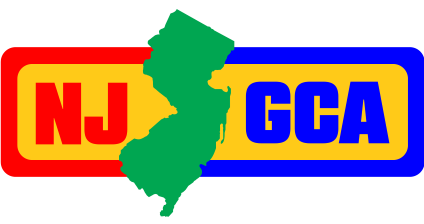Maintenance & Preventative Can Help You Avoid Fines
This week we heard from our colleagues at the NJ Department of Weights & Measures (W&M) concerning a number of issues they are finding in the field. While we can’t go into every issue discussed, we did want to share one finding that has recently generated a lot of fines and violations among retailers.
Most of us may associate W&M with catching dishonest small business owners who are knowingly doing something to cheat their customers or unfairly harm a competitor. For example, selling fuel below cost, passing off lower-grade fuel as a higher-grade blend to make a fatter profit, or manipulating dispensers to cheat customers. Sensationalism aside, we often forget that W&M regularly finds more “mundane” violations that can be costly to retailers, but easily be avoided (and save business owners money and headaches, besides).
During our recent discussion, state officials made it known that they are finding a larger number of retailers selling water-contaminated fuel. The specific reasons for individual stations could not be shared, but we did learn that many owners have not been keeping up with ordinary maintenance and/or are unaware that problems exist.
Unfortunately, this directly led to a number of citations, which could have easily been avoided.
That said, W&M staffers pointed out that we are “entering the season” when these types of violations become more common. That is to say that mid-summer to mid-fall (or roughly June 1st to November 30th) is “Hurricane Season” for the East Coast. Even if New Jersey typically does not receive the full brunt of a hurricane in the same manner as many southeast states, hurricane season does typically bring more sudden rainfall.
Of course, the danger doesn’t just end when “Hurricane Season” ends. And that’s because the winter storm season immediately follows, which brings its own pitfalls. Normally one would not think the potential for ice and snow could cause immediate water contamination to your product supply. Yet, the last few years have seen varied snowfalls. Between 2020 and 2024 snow was highly variable, with one major snowy winter followed by a period of warmer temperatures and record-breaking snow droughts. For example, snowfall was above record levels in 2020-2021/2021-2022; but fell well below average for the 2022-2023/2023-2024 periods. These variables also underscored that quick accumulation of snow was also followed by quickly warmer temperatures. This means that snow melt and water runoff occurred rapidly and suddenly. If a station owner is not taking proper precautions, water can find its way into spill buckets and contaminate your product.
What should you do?
First, you should make sure that you have reviewed and downloaded the 2025 New Jersey Fuel Dispensing Facilities Compliance Calendar from our website HERE. Using the calendar isn’t only a good habit to have, it will also save you from possible headaches and costly penalties if DEP comes to your station inquiring after your environmental compliance.
Second, you should make sure your employees develop an ordinary routine. For example, are they inspecting your spill buckets before and after every delivery to make sure it is clear of fuel, water, or debris? If your volume is modest, are you (or your employees) checking your spill buckets at least once a month or after heavy rainfall? Are you looking at your fillports before/after deliveries to ensure water or debris is present in the ports?
Taken all together, water contamination is one of the easier violations to avoid, and one of the more difficult to remediate. We can remember the bad headlines about a station in Camden County that saw floodwaters contaminate a station’s underground storage tanks; or how fuel samples taken by W&M found that the fuel sold to motorists contained a minimum of 63% water.
Though checking bucket and fillports may seem like a chore, why open yourself up to that kind of liability?
![]()

![]()